
views
Reach out first if you two aren’t talking.

Bridge the communication gap by sending a text or calling. Or, if you’re trying to reconnect with your partner, you could meet up with them in person. Since you’re the one who made a mistake, it’s up to you to reach out first, so don’t wait. If the person you’re reaching out to ignores you, try waiting a little bit, and then reaching out again. If you still don’t hear from them, it might be time to move on. Even if it’s been a long time (say, a friend you haven’t talked to in years), it’s never too late to reach out and try to repair your relationship. Say something like, “Hey Mark, long time no see. I was wondering if you’d be willing to chat with me one of these days? I know we haven’t talked in a little bit, but I have a few things I’d like to say to you.” Or, “Jane, please call me whenever you can. I know I messed up, and I really want to make things right.”
Take responsibility for your actions.

You can explain yourself, but don’t make any excuses. Spell out why you did what you did, but accept all the blame, and don’t try to shift it onto anyone else. This is a little bit different than an apology—it’s showing the person that you understand you hurt them, before you even get to saying “I’m sorry.” Try something like: “I can tell I really hurt you by insulting your job. I was really stressed out that day, but it doesn’t excuse what I said to you.” “I know I didn’t make enough time for you, and that’s not right. My busy schedule shouldn’t come before our relationship.”
Apologize sincerely.

You may be able to fix your relationship with a genuine apology. The key here is to really mean everything you say: don’t just apologize because you think it will make the other person feel better, apologize because you’re truly sorry. Be sure to include what you’re apologizing for, so they know you really mean it. Try something like: “I’m sorry for what I said to you in anger the other day. You didn’t deserve that, and I know it hurt your feelings.” “I really regret not making enough time for you, and for that I’m sorry.”
Listen to what the other person has to say.

Try not to interrupt them, and let them talk for however long they want. They might have a few more things to say to you, even after you apologize. This is especially true in romantic relationships: your partner might want to explain why what you did hurt them so badly, just to make sure it doesn’t happen again. Keep quiet and listen to them, and try not to interrupt. Ask follow-up questions, like, “Can you tell me more?” It will make the person you’re talking to feel like you’re really hearing what they’re saying.
Acknowledge their feelings.
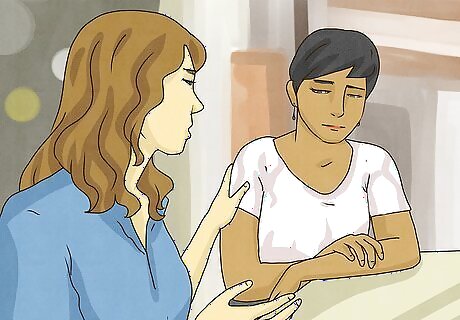
Validate them, and tell them that you understand why they feel that way. This will show the person that you know you messed up, and that you don’t want to cause them this type of pain again. Let them know that they’re completely right to feel the way that they feel, even after you’ve apologized. Say something like, “I can see why that made you so upset.” Or, “I understand why you’d feel that way. I’d probably feel the same.”
Ask if there’s anything you can do to make it right.
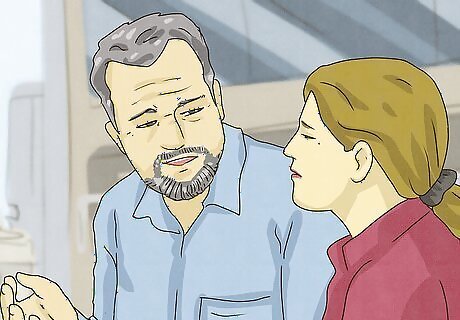
Sometimes, you might not know what the best course of action is. If you’ve already apologized and talked through what happened, ask the other person if you can do anything to make it up to them. They might not know right away either, so give it some time before they help come up with a solution. For example, if you’re repairing a relationship with your partner, they might want you to be totally open and honest about everything moving forward. If you’re repairing a relationship with a friend, they might want you to make more time for them and prioritize your friendship more. Unfortunately, they might tell you that there’s nothing you can do to make it right. If that’s the case, give the other person some time to heal.
Give the other person space if needed.

They might need some time to heal on their own. If what happened was pretty big, you may not be able to repair your relationship in a day. Ask if the other person needs space, then respect their wishes if they do. Try not to contact them until they reach out first; that way, you’ll give them time to breathe and think about things on their own. This can be really tough, but patience is key here. If you’re trying to make things right with your partner and you two live together, consider going to stay with a friend for a couple of days, just to give each other some space. Say something like, “I’m going to go stay with Jerry for a while to let you have the house to yourself. I really want to make this work.”
Make the other person realize how much they mean to you.

Actively do things to make it up to the person you hurt. This depends a lot on what actually happened, but you can do things to show the person that you care. Think about how you can show them with your actions that you want to repair this relationship. For instance, if you told your partner they weren’t important to you, take steps to show them just how much they mean to you. If you insulted a friend out of anger, let them know how good of a person they are and how much you value their friendship.
Take steps to prevent it from happening again.
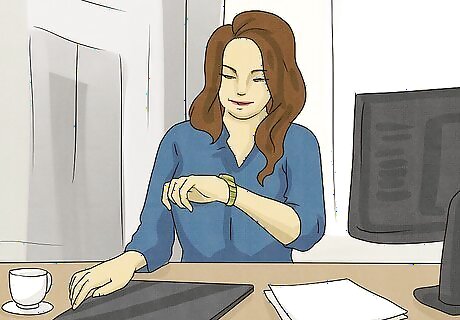
Think about what led up to the mistake you made. We’re all human, and we all make mistakes—but that doesn’t mean we can’t stop it from happening again. If you aren’t sure why it happened, consider talking to a mental health professional. They can help dissect the problem and give you guidance on how to keep going. If you tend to blow up when you’re stressed, try reducing your workload and lowering your stress levels. If you snapped at someone because you were resentful, practice communication and expressing your feelings in healthy ways. If you accused your partner of something that isn’t true, work on your trust issues and foster a healthy relationship.
Turn your mistake into a lesson.
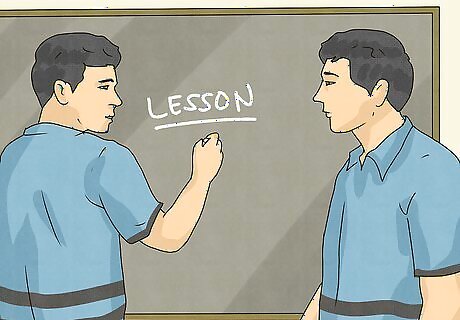
We can all learn from the mistakes we’ve made. Try to turn your mishap into a teaching moment: if you neglected a friendship for other people, you might have learned just how much time and effort friendships require. If you hurt your partner by insulting them during a fight, you might have learned how to speak respectfully, even when you’re angry. If you accused your partner of something they didn’t do (like cheating), you might have learned that you still have some leftover trust issues that you need to work on.
Accept their decision, whatever it is.
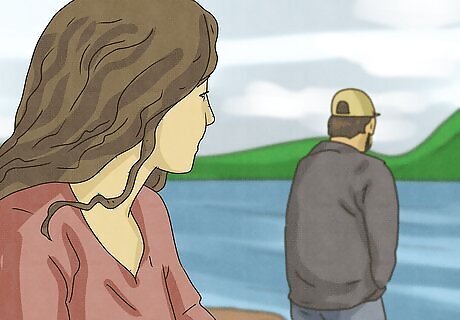
The person you hurt might forgive you, or they might not. Depending on what happened and your relationship together, they might need more time to heal, or they might need to take a break from you all together. Remember that you can’t change their mind, and that you have to respect their decision, even if you don’t like it.
Go to couple’s counseling with your partner.

A couple’s counselor can help you work through your issues together. If you and your partner would like to repair your relationship but you aren’t sure how, this is the best way. You can talk about what happened to an unbiased third-party, and they’ll help you come up with coping skills so it doesn’t happen again. If you’re struggling on an individual level, either with what happened or what the outcome was, you may want to go to solo therapy as well.

















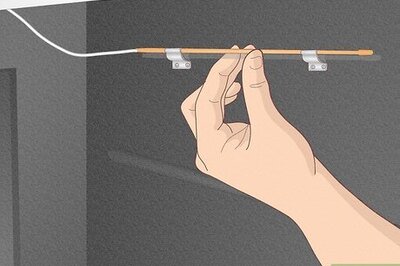


Comments
0 comment